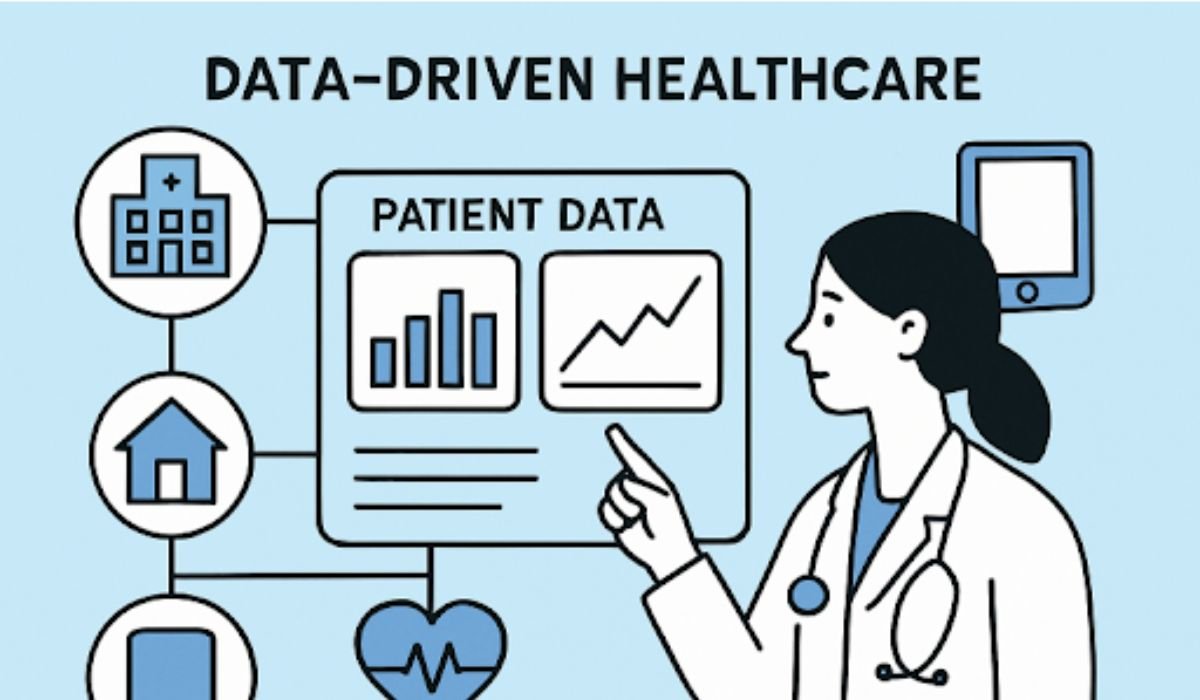Key Takeaways
- Data analytics enables faster and more accurate diagnoses.
- Personalized treatment plans are tailored to each patient’s specific needs, utilizing patient-specific data.
- Remote monitoring tools facilitate continuous patient care.
- Predictive analytics help in preventing hospital readmissions.
- Data-driven strategies optimize healthcare operations and resource allocation, enabling more effective decision-making.
In today’s rapidly evolving healthcare ecosystem, the integration of data analytics is redefining the way care is delivered. From improving patient outcomes to streamlining the operational aspects of care delivery, medical professionals and administrators are increasingly leveraging information-driven strategies to gain actionable insights that make a tangible difference in patient care. The best AI call center software for healthcare demonstrates how technology is revolutionizing not just clinical but also administrative touchpoints, creating a more connected and responsive industry.
Advances in digital records, artificial intelligence, and remote monitoring tools support the healthcare sector’s shift toward embracing data. Collectively, these innovations empower providers to move beyond intuition and anecdotal experience, basing important decisions on comprehensive, real-world evidence. Patients benefit from faster, more accurate diagnoses and treatments, while health systems become more efficient and adaptive.
Notably, a robust digital infrastructure not only helps clinicians at the point of care but also enables institutions to plan and allocate resources more effectively. As a result, the promise of data-driven medicine is not limited to the walls of the hospital—it reaches patients’ homes, workplaces, and communities with a preventative and proactive mindset.
A comprehensive approach to implementing data analytics also has substantial implications for cost savings, patient satisfaction, and public health initiatives. According to the U.S. Office of the National Coordinator for Health Information Technology, more widespread adoption of electronic health information supports care coordination and patient engagement at scale.
Enhancing Diagnostic Accuracy
One of the most immediate benefits of applying data-driven strategies in healthcare is improved diagnostic precision. Machine learning algorithms, for instance, can analyze vast data sets—from electronic health records to intricate medical imaging. These tools can identify patterns and abnormalities that are often missed by the human eye, thereby accelerating both the speed and accuracy of diagnostics. This means life-threatening diseases like cancer or rare genetic disorders can be detected earlier, leading to timelier interventions and improved prognoses. As detailed by Mayo Clinic, AI-driven image analysis is helping radiologists interpret scans with fewer errors and reduced fatigue, enhancing overall care quality.
READ ALSO: Guide to Accurate Eye Biometry: The Portable DGH A
Personalized Treatment Plans
Moving away from generic care protocols, healthcare providers now utilize detailed patient data, including genomics, environment, and lifestyle, to create individualized treatment plans. These precision medicine approaches help ensure that patients receive therapies most likely to be effective for them, while reducing the likelihood of adverse reactions. For example, pharmacogenomics can inform physicians about how a patient might metabolize specific drugs, enabling more effective and safer prescribing. As personalized medicine becomes more mainstream, patient outcomes improve, and healthcare becomes more resource-efficient.
Remote Monitoring and Virtual Care
The integration of wearable sensors, smart devices, and mobile health apps has ushered in an era of continuous patient monitoring. Patients with chronic conditions like diabetes, heart failure, or hypertension benefit from real-time tracking of vital signs, enabling swift intervention if anomalies are detected. This real-time access allows clinicians to engage in preventive care, significantly reducing emergency admissions and unnecessary in-person visits. Virtual care, coupled with patient-generated health data, empowers individuals to take an active role in managing their own health while offering comfort and convenience.
Preventing Hospital Readmissions
Predictive analytics are transforming the way healthcare organizations tackle the major issue of hospital readmissions. By examining a combination of clinical indicators, medication adherence, and social determinants, care teams can proactively identify patients at risk. Targeted follow-up, education initiatives, and in-home support services are then implemented to help patients stay on track after discharge. This approach not only reduces the clinical and financial burden associated with frequent readmissions but also leads to better overall population health management.
Optimizing Healthcare Operations
Data-driven decision-making is not exclusively about clinical care—it also enhances hospital management and workflow design. Efficiently analyzing staffing patterns, appointment trends, and inventory needs allows administrators to allocate resources where they’re most needed, cut waste, and ensure continuity of care. Operational analytics support enhanced scheduling, supply chain optimization, and demand forecasting, helping organizations stay resilient and adaptive in a rapidly changing environment.
Challenges and Considerations
While the rewards of data analytics are significant, the healthcare industry faces challenges related to data privacy and security, system interoperability, and potential algorithmic biases. Ensuring patient confidentiality is maintained and that data sharing occurs only under strict regulatory frameworks is paramount. Moreover, there is a growing need for oversight in how algorithms are designed and validated, as unchecked bias in training data can lead to health inequities. Investment in infrastructure and staff training is necessary to realize the potential of data-driven care across all populations fully.
The Road Ahead
Looking forward, emerging technologies such as machine learning, artificial intelligence, and big data analytics promise to further advance the reach of data-driven healthcare. From powering virtual health assistants to supporting breakthrough discoveries in medical research, these forces are poised to drive innovation in both patient-facing and administrative functions. Forward-thinking organizations that embrace these developments will be best positioned to lead the industry toward higher quality, more equitable care.
In conclusion, the future of healthcare will be built on the foundation of smart data use—enabling providers to deliver more precise care, enhance patient engagement, and operate with greater efficiency. By navigating the challenges thoughtfully and embracing a patient-centric perspective, the industry can harness data-driven insights to improve lives and transform practices on a global scale.
YOU MAY ALSO LIKE: Effective Office Cleaning Strategies for Healthier Workspaces

